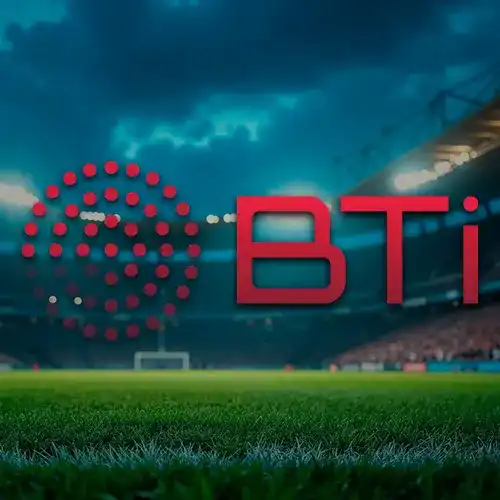MAHJONG WAYS 3+
 Slots
Slots
Inca Son
 Slots
Slots
JokerGamingLobby
 Lobby
Lobby
CQ9Lobby
 Lobby
Lobby
PGSoft Lobby
 Lobby
Lobby
SBO SportsBook
 SportsBook
SportsBook
Saba SportBook
 SportsBook
SportsBook
Panda Sports
 SportsBook
SportsBook
BTi Sports
 SportsBook
SportsBook
AFB Sports
 SportsBook
SportsBook
WS 168 CockFighting
 SportsBook
SportsBook
PragmaticPlayLobby
 Lobby
Lobby
KissGamingLobby
 Lobby
Lobby
Lucky 7
 Slots
Slots
Mahjong Princess
 Slots
Slots
Pawsome Xmas
 Slots
Slots
Feng Fu
 Slots
Slots
777 Golden Wheel
 Slots
Slots
Coin Volcano - Hold and win
 Slots
Slots
jalapeno
 Slots
Slots
Roma II
 Slots
Slots
MikiWorld Lobby
 Lobby
Lobby
FunkyGamesLobby
 Lobby
Lobby
SBOGamesLobby
 Lobby
Lobby
5 God Beast
 Slots
Slotsrotate_right Fortune Piggy Bank
 Slots
Slotsrotate_right Super Niubi Deluxe
 Slots
Slotsrotate_right Lucky Frog
 Slots
Slotsrotate_right MicroGamingLobby
 Lobby
Lobbyrotate_right YggdrasilLobby
 Lobby
Lobbyrotate_right Winning Mask
 Slots
Slotsrotate_right SUGAR BANG BANG
 Slots
Slotsrotate_right CHEF HUSKY
 Slots
Slotsrotate_right Millionaire
 Slots
Slotsrotate_right Starburst™
 Slots
Slotsrotate_right Apes Squad
 Slots
Slotsrotate_right World Cup Final
 Slots
Slotsrotate_right Money Train 2
 Slots
Slotsrotate_right London Hunter
 Slots
Slotsrotate_right Crazy 777
 Slots
Slotsrotate_right Cone BONANZA
 Slots
Slotsrotate_right Deadwood xNudge
 Slots
Slotsrotate_right WorldMatchLobby
 Lobby
Lobbyrotate_right Micro Gaming
 Lobby
Lobbyrotate_right Green Dragon
 Lobby
Lobbyrotate_right ION Casino
 Lobby
Lobbyrotate_right Sexy Gaming
 Lobby
Lobbyrotate_right AFB Casino
 Lobby
Lobbyrotate_right WM Casino
 Lobby
Lobbyrotate_right Yee Bet
 Lobby
Lobbyrotate_right Via Casino Lobby
 Lobby
Lobbyrotate_right Motivation
 Live Casino
Live Casinorotate_right Wcasino
 Lobby
Lobbyrotate_right Game Play Live Casino
 Lobby
Lobbyrotate_right Oriental Game
 Lobby
Lobbyrotate_right All Bet
 Lobby
Lobbyrotate_right World Entertainment
 Live Casino
Live Casinorotate_right Dream Gaming
 Lobby
Lobbyrotate_right SA Gaming
 Lobby
Lobbyrotate_right Play Tech
 Lobby
Lobbyrotate_right Pragmatic Play Casino
 Lobby
Lobbyrotate_right Evolution Gaming
 Lobby
Lobbyrotate_right Book of Mystery Pyramids
 Slots
Slotsrotate_right Roma
 Slots
Slotsrotate_right Mirror Mirror
 Slots
Slotsrotate_right Mahjong Ways 2
 Slots
Slotsrotate_right Mahjong Ways
 Slots
Slotsrotate_right Mahjong Ways 3 Black Scatter
 Slots
Slotsrotate_right Saba E-Sports
 SportsBook
SportsBookrotate_right Gates of Olympus 1000™
 Slots
Slotsrotate_right Magic Box
 Slots
Slotsrotate_right Royale House
 Slots
Slotsrotate_right Transformers
 Slots
Slotsrotate_right Legendary El Toro
 Slots
Slotsrotate_right Savannah King
 Slots
Slotsrotate_right Fortune Dragon
 Slots
Slotsrotate_right Black Wolf 2
 Slots
Slotsrotate_right Power Of Thor
 Slots
Slotsrotate_right GOLDEN ISLAND
 Slots
Slotsrotate_right Donki Kong
 Arcade
Arcaderotate_right RngMikiRoulette
 Table Game
Table Gamerotate_right Cash Or Crash
 Arcade
Arcaderotate_right 777 Blazing Hold and Win
 Slots
Slotsrotate_right Lost City Of Gold
 Slots
Slotsrotate_right 777
 Slots
Slotsrotate_right Fortune Rabbit Lock 2 Spin
 Slots
Slotsrotate_right Mahjong King
 Slots
Slotsrotate_right Carnival Ocean
 Slots
Slotsrotate_right Thunderstruck Wild Lightning
 Slots
Slotsrotate_right Vikings Go Berzerk: Reloaded
 Slots
Slotsrotate_right Banana Saga
 Slots
Slotsrotate_right STAR HUNTER
 Shooter
Shooterrotate_right MAHJONG WAYS 3+
 Slots
Slotsrotate_right Bonanza
 Slots
Slotsrotate_right Gonzos Quest™
 Slots
Slotsrotate_right Crypto Coin
 Slots
Slotsrotate_right Candy Rush
 Slots
Slotsrotate_right Hellcatraz
 Slots
Slotsrotate_right Fortune Dogs
 Slots
Slotsrotate_right Boxing King
 Slots
Slotsrotate_right Maya Golden City
 Slots
Slotsrotate_right San Quentin xWays
 Slots
Slotsrotate_right Banana King
 Slots
Slotsrotate_right WCasino Baccarat
 Live Casino
Live Casinorotate_right GamePlay Baccarat
 Live Casino
Live Casinorotate_right AllBet Baccarat
 Live Casino
Live Casinorotate_right ION Baccarat
 Live Casino
Live Casinorotate_right YeeBet Baccarat
 Live Casino
Live Casinorotate_right Via Baccarat
 Live Casino
Live Casinorotate_right WM Baccarat
 Live Casino
Live Casinorotate_right AFB Roulette
 Live Casino
Live Casinorotate_right MG Baccarat
 Live Casino
Live Casinorotate_right GD88 Baccarat
 Live Casino
Live Casinorotate_right Dream Baccarat
 Live Casino
Live Casinorotate_right SA Baccarat
 Live Casino
Live Casinorotate_right PlayTech Baccarat
 Live Casino
Live Casinorotate_right Sexy Baccarat
 Live Casino
Live Casinorotate_right Roma Legacy
 Slots
Slotsrotate_right 888 Cai Shen
 Slots
Slotsrotate_right Wild Bounty Showdown
 Slots
Slotsrotate_right Saba Table Game
 Live Casino
Live Casinorotate_right Gates of Olympus
 Slots
Slotsrotate_right Golden Temple
 Slots
Slotsrotate_right Royal Katt
 Slots
Slotsrotate_right Fortune Cat
 Slots
Slotsrotate_right Wild West Saloon
 Slots
Slotsrotate_right Monster Madness
 Slots
Slotsrotate_right Casino Royale
 Slots
Slotsrotate_right Lady Fortune
 Slots
Slotsrotate_right Apollo
 Slots
Slotsrotate_right MAHJONG WAYS 3
 Slots
Slotsrotate_right Mahjong Dragon
 Slots
Slotsrotate_right RngMikiRacing
 Table Game
Table Gamerotate_right Aloha! Fruityways (Megaways)
 Slots
Slotsrotate_right AmazingCircus
 Slots
Slotsrotate_right Alice
 Slots
Slotsrotate_right The Happy Prince
 Slots
Slotsrotate_right Treasury Piglet
 Slots
Slotsrotate_right Dwarf Tavern
 Slots
Slotsrotate_right Immortal Romance
 Slots
Slotsrotate_right Raptor Doublemax
 Slots
Slotsrotate_right Moonlight Treasure
 Slots
Slotsrotate_right MONEY TREE DOZER
 Arcade
Arcaderotate_right TREASURES OF AZTEC Z
 Slots
Slotsrotate_right White Rabbit
 Slots
Slotsrotate_right Jumanji
 Slots
Slotsrotate_right Block Buster
 Slots
Slotsrotate_right Jewel Mastermind
 Slots
Slotsrotate_right Temple Tumble
 Slots
Slotsrotate_right Presto!
 Slots
Slotsrotate_right Charge Buffalo
 Slots
Slotsrotate_right Treasure of Dragon
 Slots
Slotsrotate_right Punk Rocker
 Slots
Slotsrotate_right Book of Pharaon
 Slots
Slotsrotate_right ION Roulette
 Live Casino
Live Casinorotate_right YeeBet Roulette
 Live Casino
Live Casinorotate_right OG Baccarat
 Live Casino
Live Casinorotate_right GD88 Roulette
 Live Casino
Live Casinorotate_right SA Dragon Tiger
 Live Casino
Live Casinorotate_right Pragmatic Roulette
 Live Casino
Live Casinorotate_right GoldenDragon
 Slots
Slotsrotate_right Football Fever
 Slots
Slotsrotate_right Wild Bandito
 Slots
Slotsrotate_right SBO Casino
 Lobby
Lobbyrotate_right Starlight Princess™ 1000
 Slots
Slotsrotate_right Dragon Jewels
 Slots
Slotsrotate_right Poker Ways
 Slots
Slotsrotate_right Happy Fish
 Slots
Slotsrotate_right Mahjong Fortune
 Slots
Slotsrotate_right Book Of Spells
 Slots
Slotsrotate_right Fortune Tree
 Slots
Slotsrotate_right More Magic Apple
 Slots
Slotsrotate_right Jalapeno 2
 Slots
Slotsrotate_right CaribbeanTreasure
 Slots
Slotsrotate_right LUCKY NEKO
 Slots
Slotsrotate_right Mahjong Phoenix
 Slots
Slotsrotate_right RngBaccarat
 Table Game
Table Gamerotate_right Aztec Plinko
 Arcade
Arcaderotate_right DJ Remix
 Slots
Slotsrotate_right Big Diamond
 Slots
Slotsrotate_right Easter Egg Party
 Slots
Slotsrotate_right Fortune Dragon
 Slots
Slotsrotate_right Gems Rush
 Slots
Slotsrotate_right Football Star
 Slots
Slotsrotate_right Champions of Rome
 Slots
Slotsrotate_right Lucky Qilin
 Slots
Slotsrotate_right LUCKY FORTUNES
 Slots
Slotsrotate_right LUCKY ACE
 Slots
Slotsrotate_right Apollo Pays
 Slots
Slotsrotate_right Hotline 2™
 Slots
Slotsrotate_right Mahjong Style
 Slots
Slotsrotate_right PUBG2
 Slots
Slotsrotate_right Iron Bank
 Slots
Slotsrotate_right Zeus
 Slots
Slotsrotate_right Chin Shi Huang
 Slots
Slotsrotate_right Fish Prawn Crab
 Slots
Slotsrotate_right Book Of Shadows
 Slots
Slotsrotate_right Dragon Queen
 Slots
Slotsrotate_right ION SicBo
 Live Casino
Live Casinorotate_right YeeBet Dragon Tiger
 Live Casino
Live Casinorotate_right WM Roulette
 Live Casino
Live Casinorotate_right GD88 SicBo
 Live Casino
Live Casinorotate_right SA SicBo
 Live Casino
Live Casinorotate_right Sexy Dragon Tiger
 Live Casino
Live Casinorotate_right Gong Xi Fa Cai
 Slots
Slotsrotate_right Mayan Gems
 Slots
Slotsrotate_right Good Fortune M
 Slots
Slotsrotate_right Lucky Neko
 Slots
Slotsrotate_right SBO Baccarat
 Live Casino
Live Casinorotate_right Starlight Princess
 Slots
Slotsrotate_right Meow Meow
 Slots
Slotsrotate_right Wild Wet Win
 Slots
Slotsrotate_right Magic Forest
 Slots
Slotsrotate_right Persian Gems
 Slots
Slotsrotate_right Wild Weather
 Slots
Slotsrotate_right Legend of Nezha
 Slots
Slotsrotate_right Egypt Fire
 Slots
Slotsrotate_right The King Of Olympus
 Slots
Slotsrotate_right OPERA PANDA
 Slots
Slotsrotate_right Aztec Gold Treasure
 Slots
Slotsrotate_right LiveRouletteV2
 Live Casino
Live Casinorotate_right RngDice
 Table Game
Table Gamerotate_right Golden Mahjong Deluxe
 Slots
Slotsrotate_right DancingDrum
 Slots
Slotsrotate_right Bust Treasury
 Slots
Slotsrotate_right Panda Family
 Slots
Slotsrotate_right GOLDEN EMPIRE
 Slots
Slotsrotate_right Halloween
 Slots
Slotsrotate_right 9 Masks of Fire
 Slots
Slotsrotate_right Vikings Go To Hell
 Slots
Slotsrotate_right Flirting Scholar Tang
 Slots
Slotsrotate_right CHINESE NEW YEAR 2
 Slots
Slotsrotate_right SUGAR BOOM
 Slots
Slotsrotate_right Extra Chili
 Slots
Slotsrotate_right Divine Fortune™ Megaways™
 Slots
Slotsrotate_right Jarvis
 Slots
Slotsrotate_right Scale of Heaven: Anubis
 Slots
Slotsrotate_right Kluster Krystals Megaclusters
 Slots
Slotsrotate_right Four Divine Beasts
 Slots
Slotsrotate_right Shanghai Beauty
 Slots
Slotsrotate_right Money Rush
 Slots
Slotsrotate_right East Coast Vs West Coast
 Slots
Slotsrotate_right Magic Frog
 Slots
Slotsrotate_right ION Dragon Tiger
 Live Casino
Live Casinorotate_right YeeBet SicBo
 Live Casino
Live Casinorotate_right WM Sic Bo
 Live Casino
Live Casinorotate_right GD88 Dragon Tiger
 Live Casino
Live Casinorotate_right SA Roulette
 Live Casino
Live Casinorotate_right Sexy Sicbo
 Live Casino
Live Casinorotate_right SizzlingHot
 Slots
Slotsrotate_right Jump Higher mobile
 Slots
Slotsrotate_right Treasures of Aztec
 Slots
Slotsrotate_right Sweet Bonanza 1000
 Slots
Slotsrotate_right Neko Riches
 Slots
Slotsrotate_right Money Empire
 Slots
Slotsrotate_right BLACKPINK
 Slots
Slotsrotate_right DJ Club
 Slots
Slotsrotate_right Bikini Babes
 Slots
Slotsrotate_right Thrones of Persia
 Slots
Slotsrotate_right Fortune Koi
 Slots
Slotsrotate_right Dragon Wealth
 Slots
Slotsrotate_right GOD OF FORTUNE 2
 Slots
Slotsrotate_right Lucky Gems
 Slots
Slotsrotate_right RngMikiDice
 Table Game
Table Gamerotate_right Golden Koi Rise
 Slots
Slotsrotate_right 5Treasures
 Slots
Slotsrotate_right Caishen Coming
 Slots
Slotsrotate_right Greedy Night
 Slots
Slotsrotate_right Enchantress
 Slots
Slotsrotate_right Hunting Time
 Slots
Slotsrotate_right 9 Pots of Gold
 Slots
Slotsrotate_right Beauty and the Beast
 Slots
Slotsrotate_right New Year
 Slots
Slotsrotate_right GOLDEN GENIE
 Slots
Slotsrotate_right CAISHEN-LUCKY SPREAD
 Slots
Slotsrotate_right Max Megaways
 Slots
Slotsrotate_right Twin Spin™
 Slots
Slotsrotate_right Classic Diamond X5
 Slots
Slotsrotate_right Infinity Ocean
 Slots
Slotsrotate_right Ramses Revenge
 Slots
Slotsrotate_right Shaolin Fortunes
 Slots
Slotsrotate_right Money Coming
 Slots
Slotsrotate_right Super More Cash 7 II
 Slots
Slotsrotate_right Tomb of Akhenaten
 Slots
Slotsrotate_right Golden Tree
 Slots
Slotsrotate_right AllBet SicBo
 Live Casino
Live Casinorotate_right YeeBet Niu Niu
 Live Casino
Live Casinorotate_right AFB Sic Bo
 Live Casino
Live Casinorotate_right Immortals
 Slots
Slotsrotate_right Fa Cai Shen2
 Slots
Slotsrotate_right Fortune Rabbit
 Slots
Slotsrotate_right Joker's Jewels
 Slots
Slotsrotate_right Gates of Gatot Kaca 1000
 Slots
Slotsrotate_right Candy Land
 Slots
Slotsrotate_right Sexy Christmas Sirens
 Slots
Slotsrotate_right Geisha's Fan
 Slots
Slotsrotate_right Money Monkey
 Slots
Slotsrotate_right Sunlight Princess
 Slots
Slotsrotate_right GoldenMaitreya
 Slots
Slotsrotate_right Dragon Blitz
 Slots
Slotsrotate_right LiveDragonTiger
 Live Casino
Live Casinorotate_right RngRouletteSingleZero
 Table Game
Table Gamerotate_right Happy Hour Fruit Slot
 Slots
Slotsrotate_right 88Fortunes
 Slots
Slotsrotate_right Diamond Mogul
 Shooter
Shooterrotate_right Secret of Ocean
 Slots
Slotsrotate_right Panda King HOLD AND WIN
 Slots
Slotsrotate_right King Of Arena
 Slots
Slotsrotate_right Break da Bank Again
 Slots
Slotsrotate_right Cazino Zeppelin
 Slots
Slotsrotate_right Four Treasures
 Slots
Slotsrotate_right ZEUS
 Slots
Slotsrotate_right SUPER AWESOME
 Slots
Slotsrotate_right Danger High Voltage
 Slots
Slotsrotate_right Dead or Alive 2™
 Slots
Slotsrotate_right Fortune Realm
 Slots
Slotsrotate_right Aztec: Bonus Hunt
 Slots
Slotsrotate_right Money Train
 Slots
Slotsrotate_right Jugglenaut
 Slots
Slotsrotate_right Roma X
 Slots
Slotsrotate_right 777 More Cash
 Slots
Slotsrotate_right Harlequin Carnival
 Slots
Slotsrotate_right Vampire Killer
 Slots
Slotsrotate_right AllBet Dragon Tiger
 Live Casino
Live Casinorotate_right YeeBet Three Master
 Live Casino
Live Casinorotate_right Via Sic Bo
 Live Casino
Live Casinorotate_right MG Roulette
 Live Casino
Live Casinorotate_right Dream DragonTiger
 Live Casino
Live Casinorotate_right SA Money Wheel
 Live Casino
Live Casinorotate_right DragonPowerFlame
 Slots
Slotsrotate_right Money Tree
 Slots
Slotsrotate_right Fortune Tiger
 Slots
Slotsrotate_right Sweet Bonanza
 Slots
Slotsrotate_right Yeti Boom
 Slots
Slotsrotate_right Pai Gow Ways
 Slots
Slotsrotate_right Kawaii Neko
 Slots
Slotsrotate_right Fire'n'Hot
 Slots
Slotsrotate_right Strip' n Roll
 Slots
Slotsrotate_right Rio Gems
 Slots
Slotsrotate_right DragonTreasure
 Slots
Slotsrotate_right Maya Quest
 Slots
Slotsrotate_right White Tiger
 Slots
Slotsrotate_right DiamondEternity
 Slots
Slotsrotate_right Dracula
 Slots
Slotsrotate_right Millennium Love
 Slots
Slotsrotate_right Thor
 Slots
Slotsrotate_right Magic Academy
 Slots
Slotsrotate_right Cool Wolf
 Slots
Slotsrotate_right Alchymedes
 Slots
Slotsrotate_right Olympian Temple
 Slots
Slotsrotate_right WIN WIN NEKO
 Slots
Slotsrotate_right MAHJONG WAYS 3
 Slots
Slotsrotate_right The Race
 Slots
Slotsrotate_right Fruit Shop™
 Slots
Slotsrotate_right Dragon Treasure
 Slots
Slotsrotate_right Fantastic Beast
 Slots
Slotsrotate_right Lets get ready to Rumble
 Slots
Slotsrotate_right 5 Mariachis
 Slots
Slotsrotate_right Jungle King
 Slots
Slotsrotate_right Bank Robbery
 Slots
Slotsrotate_right Buffalo Hunter
 Slots
Slotsrotate_right AllBet Roulette
 Live Casino
Live Casinorotate_right YeeBet Color Disc
 Live Casino
Live Casinorotate_right WM Fan Tan
 Live Casino
Live Casinorotate_right Sexy Roulette
 Live Casino
Live Casinorotate_right EnterTheKTV
 Slots
Slotsrotate_right 5 God beasts
 Slots
Slotsrotate_right Leprechaun Riches
 Slots
Slotsrotate_right 5 Lions Megaways
 Slots
Slotsrotate_right Mermaid's Treasure
 Slots
Slotsrotate_right Frozen Queen
 Slots
Slotsrotate_right Lord Bao Bao
 Slots
Slotsrotate_right Goddess of Egypt
 Slots
Slotsrotate_right Dancing Dragon
 Slots
Slotsrotate_right EstateRichman
 Slots
Slotsrotate_right Classic Fruits 7
 Slots
Slotsrotate_right Turbo Racing King
 Slots
Slotsrotate_right FlowerOfRiches
 Slots
Slotsrotate_right Dragons Treasure
 Slots
Slotsrotate_right Sweetopia
 Slots
Slotsrotate_right 777
 Slots
Slotsrotate_right Mysterious Pyramid
 Slots
Slotsrotate_right Lucha Legends
 Slots
Slotsrotate_right Easter Island
 Slots
Slotsrotate_right Open Sesame
 Slots
Slotsrotate_right MERGE MAGIC
 Slots
Slotsrotate_right COIN MANIAC
 Slots
Slotsrotate_right Opal Fruits
 Slots
Slotsrotate_right Koi Princess™
 Slots
Slotsrotate_right MaskofTruth
 Slots
Slotsrotate_right Bunny to the Moon
 Slots
Slotsrotate_right Multiplier Odyssey
 Slots
Slotsrotate_right Dragons Throne
 Slots
Slotsrotate_right Super Ace
 Slots
Slotsrotate_right Dragon Egg
 Slots
Slotsrotate_right Tombstone
 Slots
Slotsrotate_right AllBet PokDeng
 Live Casino
Live Casinorotate_right YeeBet Cock Fighter
 Live Casino
Live Casinorotate_right AFB Bull Bull
 Live Casino
Live Casinorotate_right MG SicBo
 Live Casino
Live Casinorotate_right Sexy Thai HiLo
 Live Casino
Live Casinorotate_right LuckyGodProgressive
 Slots
Slotsrotate_right Fire Queen2
 Slots
Slotsrotate_right Sugar Rush 1000
 Slots
Slotsrotate_right The Nutcrackers
 Slots
Slotsrotate_right SanGuo - The Brotherhood
 Slots
Slotsrotate_right God of Fortune
 Slots
Slotsrotate_right Caishen Wealth
 Slots
Slotsrotate_right LittleWitch
 Slots
Slotsrotate_right Roma
 Slots
Slotsrotate_right Sparta2
 Slots
Slotsrotate_right Tai Wang Si Shen
 Slots
Slotsrotate_right Egypt Oracle
 Slots
Slotsrotate_right Wu Zetian
 Slots
Slotsrotate_right 88 Fortunes
 Slots
Slotsrotate_right Vice City
 Slots
Slotsrotate_right The Rat Pack
 Slots
Slotsrotate_right Fruitoids
 Slots
Slotsrotate_right Lucky Miner
 Slots
Slotsrotate_right LEGEND OF INCA
 Slots
Slotsrotate_right MYSTIC LEGEND 2
 Slots
Slotsrotate_right Castle of Terror
 Slots
Slotsrotate_right Gorilla Kingdom™
 Slots
Slotsrotate_right Princess and the Evil Witch
 Slots
Slotsrotate_right Genie Mystery
 Slots
Slotsrotate_right Marching Legions
 Slots
Slotsrotate_right Queen of Queens
 Slots
Slotsrotate_right Magic Lamp
 Slots
Slotsrotate_right Lucky Star
 Slots
Slotsrotate_right Mental
 Slots
Slotsrotate_right YeeBet Game Show
 Live Casino
Live Casinorotate_right AFB Dragon Tiger
 Live Casino
Live Casinorotate_right Dream Roulette
 Live Casino
Live Casinorotate_right SA PokDeng
 Live Casino
Live Casinorotate_right Sexy Thai Fish Prawn Crab
 Live Casino
Live Casinorotate_right Archer
 Slots
Slotsrotate_right Flying Cai Shen
 Slots
Slotsrotate_right Sweet Bonanza Xmas
 Slots
Slotsrotate_right Four Guardians
 Slots
Slotsrotate_right Longevity Dragon
 Slots
Slotsrotate_right Sun of Egypt 3
 Slots
Slotsrotate_right Poseidon 777
 Slots
Slotsrotate_right Richman
 Slots
Slotsrotate_right Magical Store
 Slots
Slotsrotate_right Retro Reels
 Slots
Slotsrotate_right Gem Rocks
 Slots
Slotsrotate_right AllBet Bull Bull
 Live Casino
Live Casinorotate_right Via Lucky Natural
 Live Casino
Live Casinorotate_right WM Pai Gow
 Live Casino
Live Casinorotate_right PlayTech Roulette
 Live Casino
Live Casinorotate_right Sobek’s Treasure
 Slots
Slotsrotate_right Winter Sweets
 Slots
Slotsrotate_right DiscoNight
 Slots
Slotsrotate_right Pyramid Bonanza
 Slots
Slotsrotate_right Mighty Sevens
 Slots
Slotsrotate_right Stallion Princess
 Slots
Slotsrotate_right Black Wolf
 Slots
Slotsrotate_right American Burger
 Slots
Slotsrotate_right Lucky Leprechaun
 Slots
Slotsrotate_right Double Dragons
 Slots
Slotsrotate_right AllBet Win 3 Cards
 Live Casino
Live Casinorotate_right WM This Bar
 Live Casino
Live Casinorotate_right Maneki Neko
 Slots
Slotsrotate_right LuckyGod
 Slots
Slotsrotate_right FaCaiShen
 Slots
Slotsrotate_right Gates of Gatot Kaca
 Slots
Slotsrotate_right Queen Of Aztec
 Slots
Slotsrotate_right Golden Dancing Lion
 Slots
Slotsrotate_right Heng and Ha
 Slots
Slotsrotate_right Break da Bank
 Slots
Slotsrotate_right Legend of the Golden Monkey
 Slots
Slotsrotate_right Via Hi Lo
 Live Casino
Live Casinorotate_right AFB Baccarat
 Live Casino
Live Casinorotate_right Dream Sedie
 Live Casino
Live Casinorotate_right Christmas Carnivals
 Slots
Slotsrotate_right SafariHeat
 Slots
Slotsrotate_right FireQueen
 Slots
Slotsrotate_right Mahjong Wins Bonus
 Slots
Slotsrotate_right The Great Safari
 Slots
Slotsrotate_right God Of Fortune
 Slots
Slotsrotate_right Candy Boom
 Slots
Slotsrotate_right Persia Bonanza Megaways
 Slots
Slotsrotate_right Avalon
 Slots
Slotsrotate_right Jungle Books
 Slots
Slotsrotate_right Dream Sicbo
 Live Casino
Live Casinorotate_right Las Vegas Night
 Slots
Slotsrotate_right HotFruits
 Slots
Slotsrotate_right Disco Night M
 Slots
Slotsrotate_right Bonanza Gold
 Slots
Slotsrotate_right Tiki Rush
 Slots
Slotsrotate_right Sakura Neko
 Slots
Slotsrotate_right Hit the Gold!
 Slots
Slotsrotate_right Meowfia
 Slots
Slotsrotate_right Playboy Gold
 Slots
Slotsrotate_right Lucha Maniacs
 Slots
Slotsrotate_right Dream Bull Bull
 Live Casino
Live Casinorotate_right Wallow In Money
 Slots
Slotsrotate_right ThunderGod
 Slots
Slotsrotate_right Hercules
 Slots
Slotsrotate_right The Maya Myth
 Slots
Slotsrotate_right Super Rich GOD
 Slots
Slotsrotate_right Werewolf Is Coming
 Slots
Slotsrotate_right Nirvana
 Slots
Slotsrotate_right Richest Witch
 Slots
Slotsrotate_right JustJewels
 Slots
Slotsrotate_right Flower Fortunes
 Slots
Slotsrotate_right Zeus M
 Slots
Slotsrotate_right Aladdin's lamp
 Slots
Slotsrotate_right Aztec Gems Deluxe
 Slots
Slotsrotate_right Nezha
 Slots
Slotsrotate_right 15 Dragon Pearls
 Slots
Slotsrotate_right Cupid And Psyche
 Slots
Slotsrotate_right TutsTwister
 Slots
Slotsrotate_right Via Tai Xiu
 Live Casino
Live Casinorotate_right Dream Three Cards
 Live Casino
Live Casinorotate_right Crazy Gold
 Slots
Slotsrotate_right ZhaoCaiJinBao
 Slots
Slotsrotate_right Fire Chibi
 Slots
Slotsrotate_right Christmas Carol Megaways™
 Slots
Slotsrotate_right Aztec Sun
 Slots
Slotsrotate_right Love In Memory
 Slots
Slotsrotate_right Lucky Frog
 Slots
Slotsrotate_right SCHEHERAZADE
 Slots
Slotsrotate_right Power of Thor Megaways
 Slots
Slotsrotate_right Tiger's Gold
 Slots
Slotsrotate_right Hong Kong 60s
 Slots
Slotsrotate_right WCasino Roulette
 Live Casino
Live Casinorotate_right Via Wealth SuperSix
 Live Casino
Live Casinorotate_right Dream Three Face
 Live Casino
Live Casinorotate_right Money Tree
 Slots
Slotsrotate_right Huga
 Slots
Slotsrotate_right Double Fly
 Slots
Slotsrotate_right Forging Wilds
 Slots
Slotsrotate_right Farm Of Fortune
 Slots
Slotsrotate_right Aztec Fire2-Hold & Win Multi
 Slots
Slotsrotate_right Cheer Up
 Slots
Slotsrotate_right Road Rage
 Slots
Slotsrotate_right Fa Cai Shen M
 Slots
Slotsrotate_right Kronos
 Slots
Slotsrotate_right Sumo Supreme Megaways
 Slots
Slotsrotate_right Hot to Burn - 7 Deadly Free Spins
 Slots
Slotsrotate_right Grab more Gold!
 Slots
Slotsrotate_right Lucky 777
 Slots
Slotsrotate_right Lilith
 Slots
Slotsrotate_right WCasino Dragon Tiger
 Live Casino
Live Casinorotate_right Via Color Game
 Live Casino
Live Casinorotate_right PlayTech Blackjack
 Live Casino
Live Casinorotate_right FruitKing
 Slots
Slotsrotate_right Rave Jump mobile
 Slots
Slotsrotate_right Yeti Quest
 Slots
Slotsrotate_right Boom! Boom! Gold!
 Slots
Slotsrotate_right Happy Fruits
 Slots
Slotsrotate_right Stone Age
 Slots
Slotsrotate_right Jumping Mobile
 Slots
Slotsrotate_right Super5
 Slots
Slotsrotate_right Running Sushi
 Slots
Slotsrotate_right Tiger Gems-Hold and win
 Slots
Slotsrotate_right God Of Wealth
 Slots
Slotsrotate_right Fortune Fu
 Slots
Slotsrotate_right Thor
 Slots
Slotsrotate_right Snow Queen
 Slots
Slotsrotate_right Dragon Gold 88
 Slots
Slotsrotate_right Ranger Showdown
 Slots
Slotsrotate_right 3 Hot Chillies
 Slots
Slotsrotate_right James Bond
 Slots
Slotsrotate_right God of War M
 Slots
Slotsrotate_right Money Stacks
 Slots
Slotsrotate_right Sexy Vegas
 Slots
Slotsrotate_right Forest Spirit
 Slots
Slotsrotate_right WCasino SicBo
 Live Casino
Live Casinorotate_right ZhongKui
 Slots
Slotsrotate_right GuGuGu2
 Slots
Slotsrotate_right Bow of Artemis
 Slots
Slotsrotate_right Sweet Frenzy
 Slots
Slotsrotate_right 777 Coins
 Slots
Slotsrotate_right PlayTech Holdem Poker
 Live Casino
Live Casinorotate_right GuGuGu
 Slots
Slotsrotate_right HappyRichYear
 Slots
Slotsrotate_right Gold Rush Cowboy
 Slots
Slotsrotate_right Coin UP: Hot Fire
 Slots
Slotsrotate_right WCasino SeDie
 Live Casino
Live Casinorotate_right PlayTech Dragon Tiger
 Live Casino
Live Casinorotate_right Diamond Treasure
 Slots
Slotsrotate_right Wheel Money
 Slots
Slotsrotate_right Legend of Nian
 Slots
Slotsrotate_right African Spirit Sticky Wilds
 Slots
Slotsrotate_right PlayTech HiLo
 Live Casino
Live Casinorotate_right JungleParty
 Arcade
Arcaderotate_right Treasure Bowl
 Slots
Slotsrotate_right Oceanic Melodies
 Slots
Slotsrotate_right Olaf Viking
 Slots
Slotsrotate_right PlayTech SicBo
 Live Casino
Live Casinorotate_right Mr. Bean
 Arcade
Arcaderotate_right Sugar Rush
 Slots
Slotsrotate_right Mining Bonanza
 Slots
Slotsrotate_right Rich Caishen
 Slots
Slotsrotate_right Sky Pearls
 Slots
Slotsrotate_right PlayTech Everybody's Jackpot Live
 Live Casino
Live Casinorotate_right Xmas
 Slots
Slotsrotate_right Rave Jump 2 M
 Slots
Slotsrotate_right The Dog House
 Slots
Slotsrotate_right Heavenly Fortunes
 Slots
Slotsrotate_right Lion Coins
 Slots
Slotsrotate_right OG Dragon Tiger
 Live Casino
Live Casinorotate_right PlayTech Spin a Win
 Live Casino
Live Casinorotate_right Heavenly Fortunes 2
 Slots
Slotsrotate_right 3 Clover Pots
 Slots
Slotsrotate_right PlayTech Buffalo Blitz Live Slots
 Live Casino
Live Casinorotate_right Chicky Parm Parm
 Slots
Slotsrotate_right Fruit Party
 Slots
Slotsrotate_right 3 China Pots
 Slots
Slotsrotate_right PlayTech Adventures Beyond Wonderland Live
 Live Casino
Live Casinorotate_right Fruity Carnival
 Slots
Slotsrotate_right Zeus vs Hades - Gods of War™
 Slots
Slotsrotate_right City of Jewels
 Slots
Slotsrotate_right Fishin' Bear
 Slots
Slotsrotate_right PlayTech Sette E Mezzo
 Live Casino
Live Casinorotate_right Jewel Luxury
 Slots
Slotsrotate_right Big Bass Bonanza
 Slots
Slotsrotate_right Safari Blitz
 Slots
Slotsrotate_right Adventure To The West
 Slots
Slotsrotate_right Muay Thai Fighter
 Slots
Slotsrotate_right Coin UP: Lightning
 Slots
Slotsrotate_right PlayTech Football Card Showdown Live
 Live Casino
Live Casinorotate_right Mustang Gold Megaways™
 Slots
Slotsrotate_right Fruits Mania
 Slots
Slotsrotate_right Money Dragon
 Slots
Slotsrotate_right Amazonia Spirit
 Slots
Slotsrotate_right PlayTech Spin A Win Wild Live
 Live Casino
Live Casinorotate_right God Of Wealth
 Slots
Slotsrotate_right Caribbean Riches
 Slots
Slotsrotate_right Fortune Globe
 Slots
Slotsrotate_right GoldenEggs
 Slots
Slotsrotate_right Big Bass Vegas Double Down Deluxe
 Slots
Slotsrotate_right Gem Elevator
 Slots
Slotsrotate_right Mushroom Bandit
 Slots
Slotsrotate_right Leprechaun Bonanza
 Slots
Slotsrotate_right Storm of Olympus
 Slots
Slotsrotate_right Dragon Heart
 Slots
Slotsrotate_right Fortune Lions
 Slots
Slotsrotate_right Neon Fantasy
 Slots
Slotsrotate_right Lucky Penny
 Slots
Slotsrotate_right WildTarzan
 Slots
Slotsrotate_right Aztec Treasure Hunt
 Slots
Slotsrotate_right Honey Trap
 Slots
Slotsrotate_right Fiery Lava
 Slots
Slotsrotate_right 777 Fruity Classic
 Slots
Slotsrotate_right Space Conquest
 Slots
Slotsrotate_right Golden Teapot
 Slots
Slotsrotate_right RedPhoenix
 Slots
Slotsrotate_right Lucky Fortune
 Slots
Slotsrotate_right Sky Coins
 Slots
Slotsrotate_right Roma
 Slots
Slotsrotate_right Crystal Scarabs
 Slots
Slotsrotate_right Ganesha Luck
 Slots
Slotsrotate_right Gold Nuggets
 Slots
Slotsrotate_right Evolution Roulette
 Live Casino
Live Casinorotate_right Detective Dee 2
 Slots
Slotsrotate_right Loki
 Slots
Slotsrotate_right Sun of Egypt 4
 Slots
Slotsrotate_right OG SicBo
 Live Casino
Live Casinorotate_right Treasure Island
 Slots
Slotsrotate_right Congo Cash XL
 Slots
Slotsrotate_right Legend Of Eagle
 Slots
Slotsrotate_right 3 Egypt Chests
 Slots
Slotsrotate_right Spin and Win
 Slots
Slotsrotate_right Green Chilli 2
 Slots
Slotsrotate_right GamePlay Dragon Tiger
 Live Casino
Live Casinorotate_right RaveHigh
 Slots
Slotsrotate_right Triple Happiness
 Slots
Slotsrotate_right Little Farm
 Slots
Slotsrotate_right Six Candy
 Slots
Slotsrotate_right Yo-Ho Gold!
 Slots
Slotsrotate_right WaterWorld
 Slots
Slotsrotate_right Hit more Gold!
 Slots
Slotsrotate_right Big Heist
 Slots
Slotsrotate_right GamePlay SicBo
 Live Casino
Live Casinorotate_right Fire Chibi 2
 Slots
Slotsrotate_right Aztec Fire-Hold & win
 Slots
Slotsrotate_right SoSweet
 Slots
Slotsrotate_right Lotus Charm
 Slots
Slotsrotate_right Paradise
 Shooter
Shooterrotate_right Pearl Diver 2: Treasure Chest
 Slots
Slotsrotate_right Eggs of Gold
 Slots
Slotsrotate_right Chameleon
 Slots
Slotsrotate_right Queen Of The Sun
 Slots
Slotsrotate_right Hephaestus
 Slots
Slotsrotate_right 777
 Slots
Slotsrotate_right Book of Wizard: Crystal Chance
 Slots
Slotsrotate_right Lord Fortune 2
 Slots
Slotsrotate_right Gold Express
 Slots
Slotsrotate_right OG Bull Bull
 Live Casino
Live Casinorotate_right Gu Gu Gu 3
 Slots
Slotsrotate_right Book Of Wizard
 Slots
Slotsrotate_right GamePlay HiLo
 Live Casino
Live Casinorotate_right Ne Zha Advent
 Slots
Slotsrotate_right Tiger Jungle
 Slots
Slotsrotate_right OG 3 Cards
 Live Casino
Live Casinorotate_right Wolf Night
 Slots
Slotsrotate_right 3 Coins: Egypt
 Slots
Slotsrotate_right OG Roulette
 Live Casino
Live Casinorotate_right Evolution Blackjack
 Live Casino
Live Casinorotate_right Invincible Elephant
 Slots
Slotsrotate_right Wukong
 Slots
Slotsrotate_right Pragmatic Baccarat
 Live Casino
Live Casinorotate_right 5 Boxing
 Slots
Slotsrotate_right Pearl Diver
 Slots
Slotsrotate_right GamePlay XocDia
 Live Casino
Live Casinorotate_right Wolf Moon
 Slots
Slotsrotate_right OG SeDie
 Live Casino
Live Casinorotate_right Wonderland
 Slots
Slotsrotate_right GamePlay Roulette
 Live Casino
Live Casinorotate_right Fa Cai Fu Wa
 Slots
Slotsrotate_right MuayThai
 Slots
Slotsrotate_right Lucky Bats M
 Slots
Slotsrotate_right Mr.Rich
 Slots
Slotsrotate_right GamePlay Super 3 Pictures
 Live Casino
Live Casinorotate_right OrientalBeauty
 Slots
Slotsrotate_right GamePlay Blackjack
 Live Casino
Live Casinorotate_right Fire Chibi M
 Slots
Slotsrotate_right GamePlay Super FanTan
 Live Casino
Live Casinorotate_right Shou-Xin
 Slots
Slotsrotate_right GamePlay Three Card Poker
 Live Casino
Live Casinorotate_right Fortune Totem
 Slots
Slotsrotate_right Jump High
 Slots
Slotsrotate_right RaveJump
 Slots
Slotsrotate_right Jump Higher
 Slots
Slotsrotate_right LuckyBats
 Slots
Slotsrotate_right Good Fortune
 Slots
Slotsrotate_right 6 Toros
 Slots
Slotsrotate_right Fly Out
 Slots
Slotsrotate_right God of War
 Slots
Slotsrotate_right Zeus
 Slots
Slotsrotate_right RaveJump2
 Slots
Slotsrotate_right Move ' Jump
 Slots
Slotsrotate_right Fire777
 Slots
Slotsrotate_right RunningToro
 Slots
Slotsrotate_right Gu Gu Gu 2 M
 Slots
Slotsrotate_right Zuma Wild
 Slots
Slotsrotate_right Sherlock Holmes
 Slots
Slotsrotate_right Gold Stealer
 Slots
Slotsrotate_right Meow
 Slots
Slotsrotate_right Gu Gu Gu M
 Slots
Slotsrotate_right WanBaoDino
 Slots
Slotsrotate_right CrazyNuozha
 Slots
Slotsrotate_right GodOfChess
 Slots
Slotsrotate_right Detective Dee
 Slots
Slotsrotate_right Poseidon
 Slots
Slotsrotate_right Lonely Planet
 Slots
Slotsrotate_right SummerMood
 Slots
Slotsrotate_right Pragmatic SicBo
 Live Casino
Live Casinorotate_right YuanBao
 Slots
Slotsrotate_right TreasureHouse
 Slots
Slotsrotate_right SkrSkr
 Slots
Slotsrotate_right WuKong&Peaches
 Slots
Slotsrotate_right Pragmatic Dragon Tiger
 Live Casino
Live Casinorotate_right Pyramid Raider
 Slots
Slotsrotate_right Sky Lantern
 Slots
Slotsrotate_right Pragmatic Mega Wheel
 Live Casino
Live Casinorotate_right 888
 Slots
Slotsrotate_right Pragmatic Sweet Bonanza Candy Land
 Live Casino
Live Casinorotate_right Fruit King II
 Slots
Slotsrotate_right Funny Alpaca
 Slots
Slotsrotate_right Pragmatic Boom City
 Live Casino
Live Casinorotate_right The Beast War
 Slots
Slotsrotate_right Pragmatic Snakes & Ladders Live
 Live Casino
Live Casinorotate_right Pragmatic Treasure Island
 Live Casino
Live Casinorotate_right VampireKiss
 Slots
Slotsrotate_right Pragmatic Vegas Ball Bonanza
 Live Casino
Live Casinorotate_right HotSpin
 Slots
Slotsrotate_right Jump High 2
 Slots
Slotsrotate_right Pragmatic Andar Bahar
 Live Casino
Live Casinorotate_right Apollo
 Slots
Slotsrotate_right Apsaras
 Slots
Slotsrotate_right Running Animals
 Slots
Slotsrotate_right LuckyBoxes
 Slots
Slotsrotate_right Pig Of Luck
 Slots
Slotsrotate_right Thor 2
 Slots
Slotsrotate_right GreatLion
 Slots
Slotsrotate_right Ecstatic Circus
 Slots
Slotsrotate_right Magic World
 Slots
Slotsrotate_right Gophers War
 Slots
Slotsrotate_right MonkeyOfficeLegend
 Slots
Slotsrotate_right Golden Mayan
 Slots
Slotsrotate_right All Wilds
 Slots
Slotsrotate_right Evolution Dream Catcher
 Live Casino
Live Casinorotate_right WorldCupRussia2018
 Slots
Slotsrotate_right Evolution Cash or Crash
 Live Casino
Live Casinorotate_right BigWolf
 Slots
Slotsrotate_right Evolution Craps
 Live Casino
Live Casinorotate_right Pub Tycoon
 Slots
Slotsrotate_right FootballBoots
 Slots
Slotsrotate_right Fortune Spirits
 Slots
Slotsrotate_right Boots Of Luck
 Slots
Slotsrotate_right Evolution Football Studio
 Live Casino
Live Casinorotate_right All Star Team
 Slots
Slotsrotate_right Evolution Gonzos Treasure Hunt
 Live Casino
Live Casinorotate_right Dragon Hunters
 Slots
Slotsrotate_right Evolution Dragon Tiger
 Live Casino
Live Casinorotate_right Wild Fudge
 Slots
Slotsrotate_right Treasure of Seti
 Slots
Slotsrotate_right Evolution SicBo
 Live Casino
Live Casinorotate_right Cirque de fous
 Slots
Slotsrotate_right Evolution Fan Tan
 Live Casino
Live Casinorotate_right Lucky 3
 Slots
Slotsrotate_right Queen Of Dead
 Slots
Slotsrotate_right SakuraLegend
 Slots
Slotsrotate_right FootballBaby
 Slots
Slotsrotate_right Pharaoh's Gold
 Slots
Slotsrotate_right Hollywood Pets
 Slots
Slotsrotate_right Xmas Tales
 Slots
Slotsrotate_right WonWonWon
 Slots
Slotsrotate_right Oneshot Fishing
 Shooter
Shooterrotate_right Lucky Fishing
 Shooter
Shooterrotate_right Wolf Disco
 Slots
Slotsrotate_right Six Gacha
 Slots
Slotsrotate_right Wing Chun
 Slots
Slotsrotate_right Cricket Fever
 Slots
Slotsrotate_right Fortune Dragon
 Slots
Slotsrotate_right Lord Ganesha
 Slots
Slotsrotate_right Tenfold Eggs
 Arcade
Arcaderotate_right Dragon’s Treasure
 Other
Otherrotate_right Songkran Festival
 Slots
Slotsrotate_right Sweet POP
 Slots
Slotsrotate_right Jungle Treasure
 Slots
Slotsrotate_right Banker Dice Bull-Bull
 Table Game
Table Gamerotate_right Peeking Banker Bull-Bull
 Table Game
Table Gamerotate_right Dollar Bomb
 Slots
Slotsrotate_right King Kong Shake
 Slots
Slotsrotate_right Ganesha Jr.
 Slots
Slotsrotate_right LongLaiFa
 Slots
Slotsrotate_right Mahjong Fruit
 Arcade
Arcaderotate_right Slot 777
 Slots
Slotsrotate_right Monster Hunter
 Slots
Slotsrotate_right King of Atlantis
 Slots
Slotsrotate_right Xoc Dia
 Arcade
Arcaderotate_right Niu Niu Niu
 Slots
Slotsrotate_right Hot Pinatas
 Slots
Slotsrotate_right Thai HILO
 Arcade
Arcaderotate_right 3 2 1Go!
 Arcade
Arcaderotate_right Rush Hour
 Slots
Slotsrotate_right Lin Chong
 Slots
Slotsrotate_right Wild Chameleon
 Slots
Slotsrotate_right Da Fa Cai
 Slots
Slotsrotate_right Da Hong Zhong
 Slots
Slotsrotate_right Uproar In Heaven
 Slots
Slotsrotate_right Dragon Ball
 Slots
Slotsrotate_right Water Margin
 Slots
Slotsrotate_right Burning Xi-You
 Slots
Slotsrotate_right Ninja Raccoon
 Slots
Slotsrotate_right Alice Run
 Arcade
Arcaderotate_right Oo Ga Cha Ka
 Slots
Slotsrotate_right The Cupids
 Slots
Slotsrotate_right Mini Roulette
 Arcade
Arcaderotate_right Da Fu Xing
 Slots
Slotsrotate_right Zombie's Fortune
 Slots
Slotsrotate_right Fortune Gate
 Slots
Slotsrotate_right MULAN
 Slots
Slotsrotate_right HAPPY BUDDHA
 Slots
Slotsrotate_right Typhoon Cash
 Slots
Slotsrotate_right MONKEY KING
 Slots
Slotsrotate_right JIN LIAN PAN
 Slots
Slotsrotate_right LongLongLong
 Slots
Slotsrotate_right Doggone Lucky
 Slots
Slotsrotate_right ROLLING DRAGON
 Slots
Slotsrotate_right TIGER HERO
 Slots
Slotsrotate_right Fortune Cats
 Slots
Slotsrotate_right Empress Wu
 Slots
Slotsrotate_right Master Panda
 Slots
Slotsrotate_right Double Happy
 Slots
Slotsrotate_right Five Ghosts
 Slots
Slotsrotate_right Backyard Gold
 Slots
Slotsrotate_right Five Lucky Elements
 Slots
Slotsrotate_right Stone to Gold
 Slots
Slotsrotate_right Rabbit Rampage
 Slots
Slotsrotate_right Lotus Lantern
 Slots
Slotsrotate_right Dou Di Zhu Plus
 Slots
Slotsrotate_right Sun Er Niang
 Slots
Slotsrotate_right HUGA
 Slots
Slotsrotate_right The Magic Brush
 Slots
Slotsrotate_right The Legend Of Snake
 Slots
Slotsrotate_right Xiao Fu Xing
 Slots
Slotsrotate_right XIYOUJI
 Slots
Slotsrotate_right Wealthy Chicken
 Slots
Slotsrotate_right Ba Xian Chuan Qi
 Slots
Slotsrotate_right Magpie Bridge
 Slots
Slotsrotate_right Dragon Gate
 Slots
Slotsrotate_right Love Story
 Slots
Slotsrotate_right Myth
 Slots
Slotsrotate_right Hu Got Lucky
 Slots
Slotsrotate_right Le Cirque
 Slots
Slotsrotate_right Dou Di Zhu
 Slots
Slotsrotate_right PARTY ISLAND
 Slots
Slotsrotate_right Nezha
 Slots
Slotsrotate_right Eternal Fortune
 Slots
Slotsrotate_right Mazu
 Slots
Slotsrotate_right JUNGLE ISLAND
 Slots
Slotsrotate_right Sheng Xiao Chuan Qi
 Slots
Slotsrotate_right Kickin' Kash
 Slots
Slotsrotate_right Beanstalk
 Slots
Slotsrotate_right GENIE
 Slots
Slotsrotate_right Hungry Cats
 Slots
Slotsrotate_right Lucky Legend
 Slots
Slotsrotate_right Dragon Koi
 Slots
Slotsrotate_right Hot DJ
 Slots
Slotsrotate_right Loy Krathong
 Slots
Slotsrotate_right Coin Spinner
 Slots
Slotsrotate_right The Dragon Brings Wealth
 Slots
Slotsrotate_right Myeong-ryang
 Slots
Slotsrotate_right Night City
 Slots
Slotsrotate_right Diamond Fruit
 Slots
Slotsrotate_right Songkran
 Slots
Slotsrotate_right Mr. Miser
 Slots
Slotsrotate_right Acrobatics
 Slots
Slotsrotate_right Greek Gods
 Slots
Slotsrotate_right Lucky Tigers
 Slots
Slotsrotate_right Frozen World
 Slots
Slotsrotate_right Hero Fishing
 Shooter
Shooterrotate_right Happy Insect
 Shooter
Shooterrotate_right K.O. Island
 Arcade
Arcaderotate_right Thai Fish Prawn Crab
 Arcade
Arcaderotate_right Seotda
 Arcade
Arcaderotate_right Landlord Fights Carnival
 Table Game
Table Gamerotate_right Thai Pok Deng
 Table Game
Table Gamerotate_right Baseball Fever
 Slots
Slotsrotate_right Football Fever M
 Slots
Slotsrotate_right Hong Kong Flavor
 Slots
Slotsrotate_right Striker WILD
 Slots
Slotsrotate_right Mahjong For 2 Players
 Table Game
Table Gamerotate_right Sweet 666 Deluxe
 Slots
Slotsrotate_right The Chicken House
 Slots
Slotsrotate_right Royal Fruit
 Slots
Slotsrotate_right Double Happiness
 Slots
Slotsrotate_right Mummy's Treasure
 Other
Otherrotate_right The Dragon Brings Wealth 2
 Slots
Slotsrotate_right Hero of the 3 Kingdoms - Cao Cao
 Slots
Slotsrotate_right Treasure Koi
 Slots
Slotsrotate_right Funky Bingo
 Table Game
Table Gamerotate_right Mega Winner
 Slots
Slotsrotate_right Fishing King
 Slots
Slotsrotate_right Treasure Pirate
 Slots
Slotsrotate_right Xiao Ne Zha
 Slots
Slotsrotate_right Mafia
 Slots
Slotsrotate_right CHICAGOⅡ
 Slots
Slotsrotate_right Golden Dragon Club
 Slots
Slotsrotate_right Jin Bi Hui Huang
 Slots
Slotsrotate_right Go Fishing
 Slots
Slotsrotate_right Jumping Mobile
 Slots
Slotsrotate_right Jump Higher
 Slots
Slotsrotate_right Pig Of Luck
 Slots
Slotsrotate_right Golden Mayan
 Slots
Slotsrotate_right Fortune Spirits
 Slots
Slotsrotate_right Boots Of Luck
 Slots
Slotsrotate_right All Star Team
 Slots
Slotsrotate_right Dragon Hunters
 Slots
Slotsrotate_right Wild Fudge
 Slots
Slotsrotate_right Treasure of Seti
 Slots
Slotsrotate_right Cirque de fous
 Slots
Slotsrotate_right Lucky 3
 Slots
Slotsrotate_right Queen Of Dead
 Slots
Slotsrotate_right Hollywood Pets
 Slots
Slotsrotate_right Xmas Tales
 Slots
Slotsrotate_right 3 Genie Wishes
 Slots
Slotsrotate_right 3 Kingdoms - Battle of Red Cliffs
 Slots
Slotsrotate_right 5 Lions
 Slots
Slotsrotate_right 5 Lions Gold
 Slots
Slotsrotate_right 7 Monkeys
 Slots
Slotsrotate_right 7 Piggies
 Slots
Slotsrotate_right 8 Dragons
 Slots
Slotsrotate_right 888 Dragons
 Slots
Slotsrotate_right 888 Gold
 Slots
Slotsrotate_right Aladdin and the Sorcerer
 Slots
Slotsrotate_right Ancient Egypt
 Slots
Slotsrotate_right Ancient Egypt Classic
 Slots
Slotsrotate_right Asgard
 Slots
Slotsrotate_right Aztec Bonanza
 Slots
Slotsrotate_right Aztec Gems
 Slots
Slotsrotate_right Beowulf
 Slots
Slotsrotate_right Buffalo King
 Slots
Slotsrotate_right Busy Bees
 Slots
Slotsrotate_right Caishen's Cash
 Slots
Slotsrotate_right
